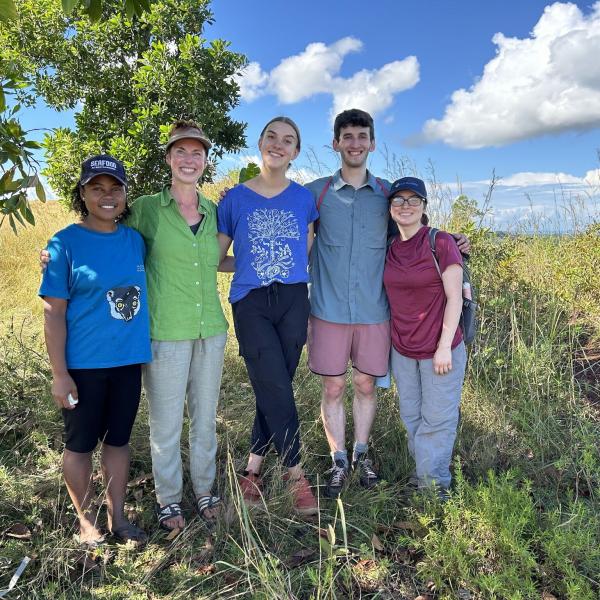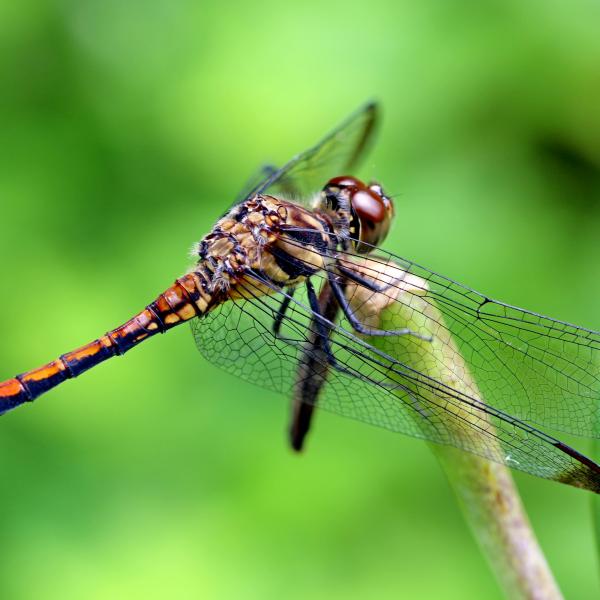Faculty and university leadership selected Benjamin Noble, a fifth-year graduate student in political science, as the winner of the inaugural Dean’s Award for Graduate Research Excellence. Six additional graduate students were recognized as finalists.
Earlier this month, finalists for the inaugural Dean’s Award for Graduate Research Excellence had the opportunity to present their work to faculty and university leadership, including members of the Arts & Sciences National Council. After rounds of lightning talks, the council selected Benjamin Noble, a fifth-year doctoral student in political science, as the overall winner of the prize.
Sophia Hayes, vice dean of graduate education and professor of chemistry, sees the new award as a chance to celebrate “learning at the edge of what is known.” Departments and programs across Arts & Sciences nominated up to two graduate students each for the award, which recognizes outstanding achievements in research or creative practice that occurred within the past two years.
“In graduate programs we produce works of the imagination — books, poetry, cutting-edge scientific discoveries — which are lasting testaments to our distinctly human capacity for creativity,” Hayes said at the award selection event and celebration. She also made a point of recognizing graduate advisers, who play significant roles in guiding students’ research and professional development.
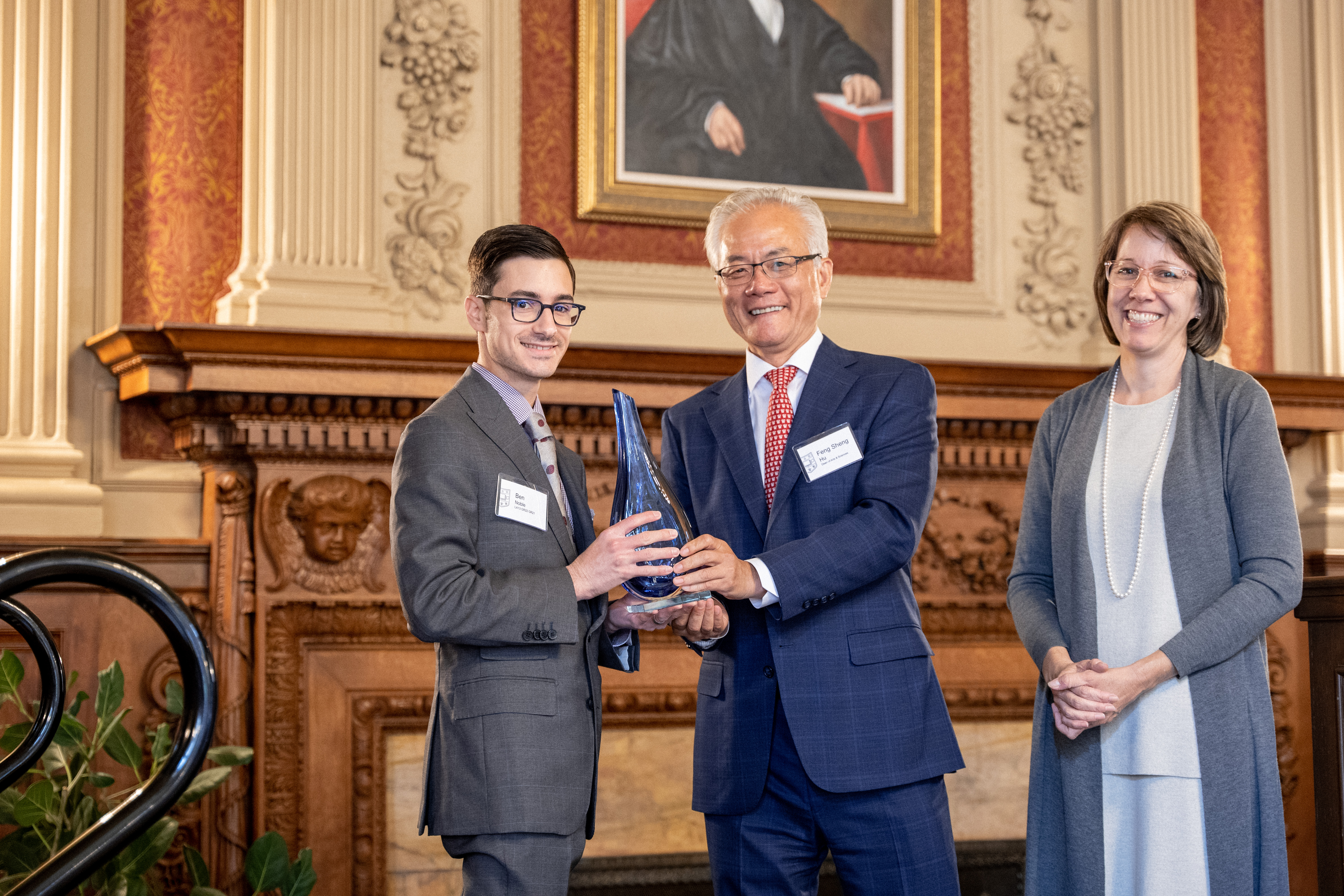
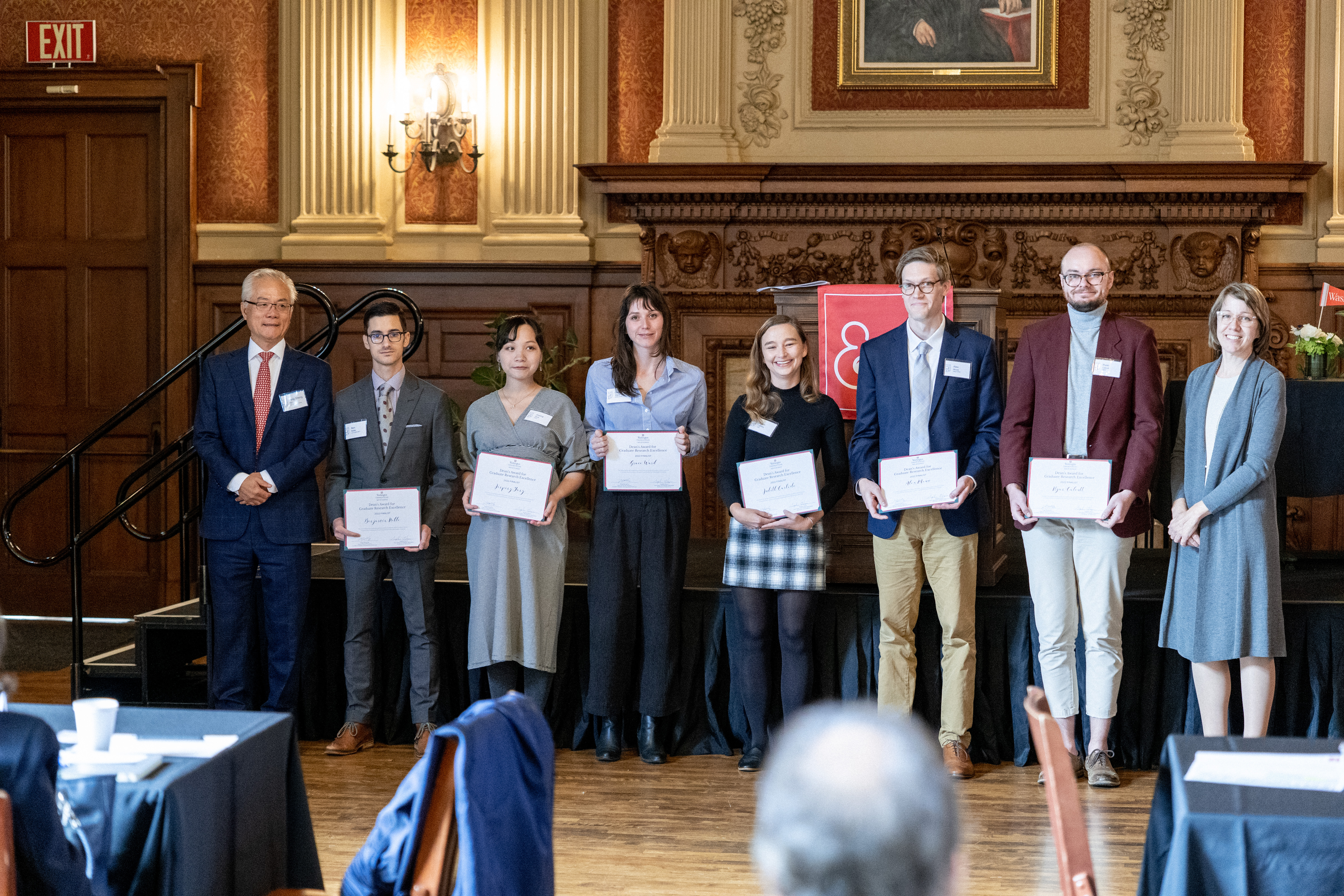
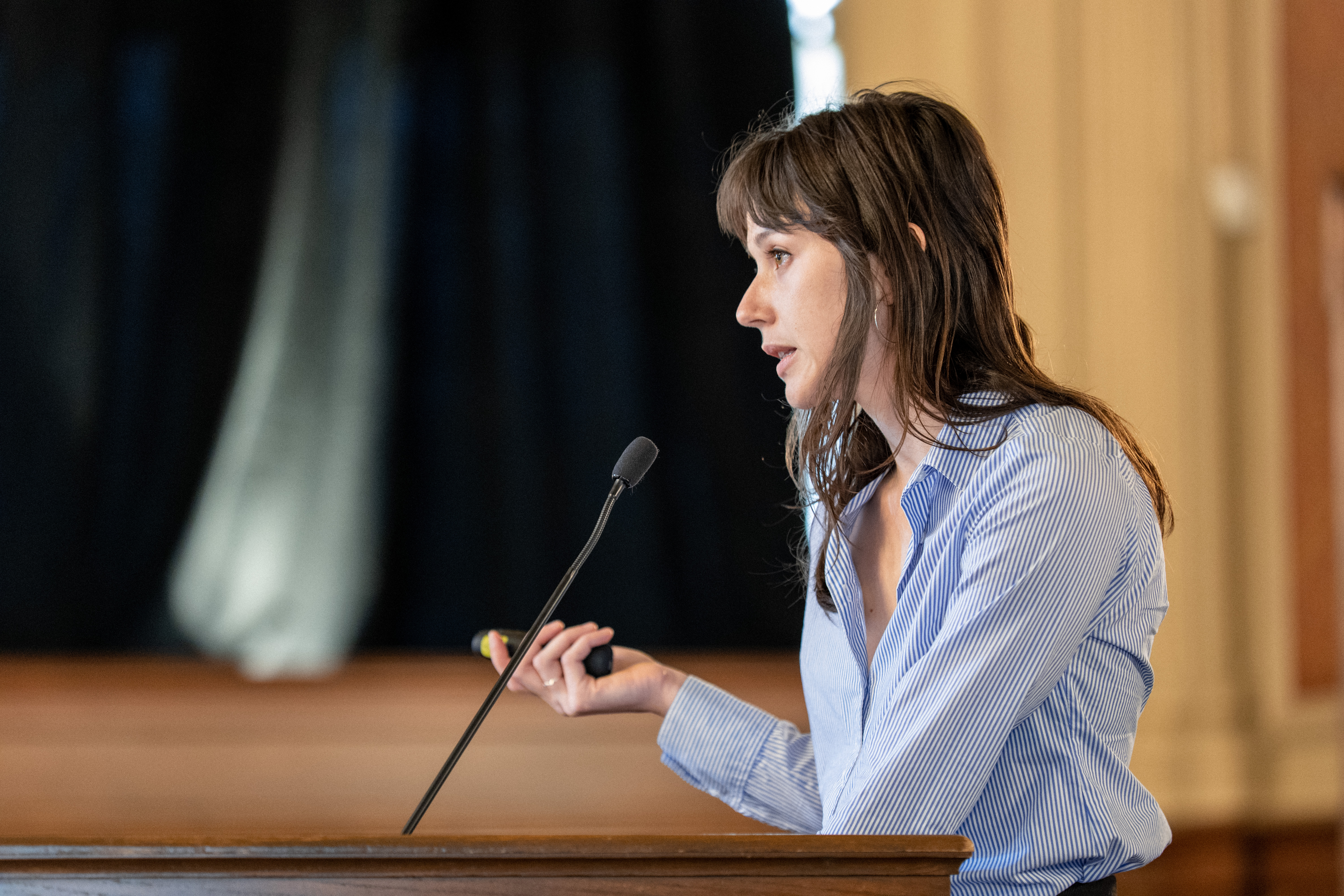
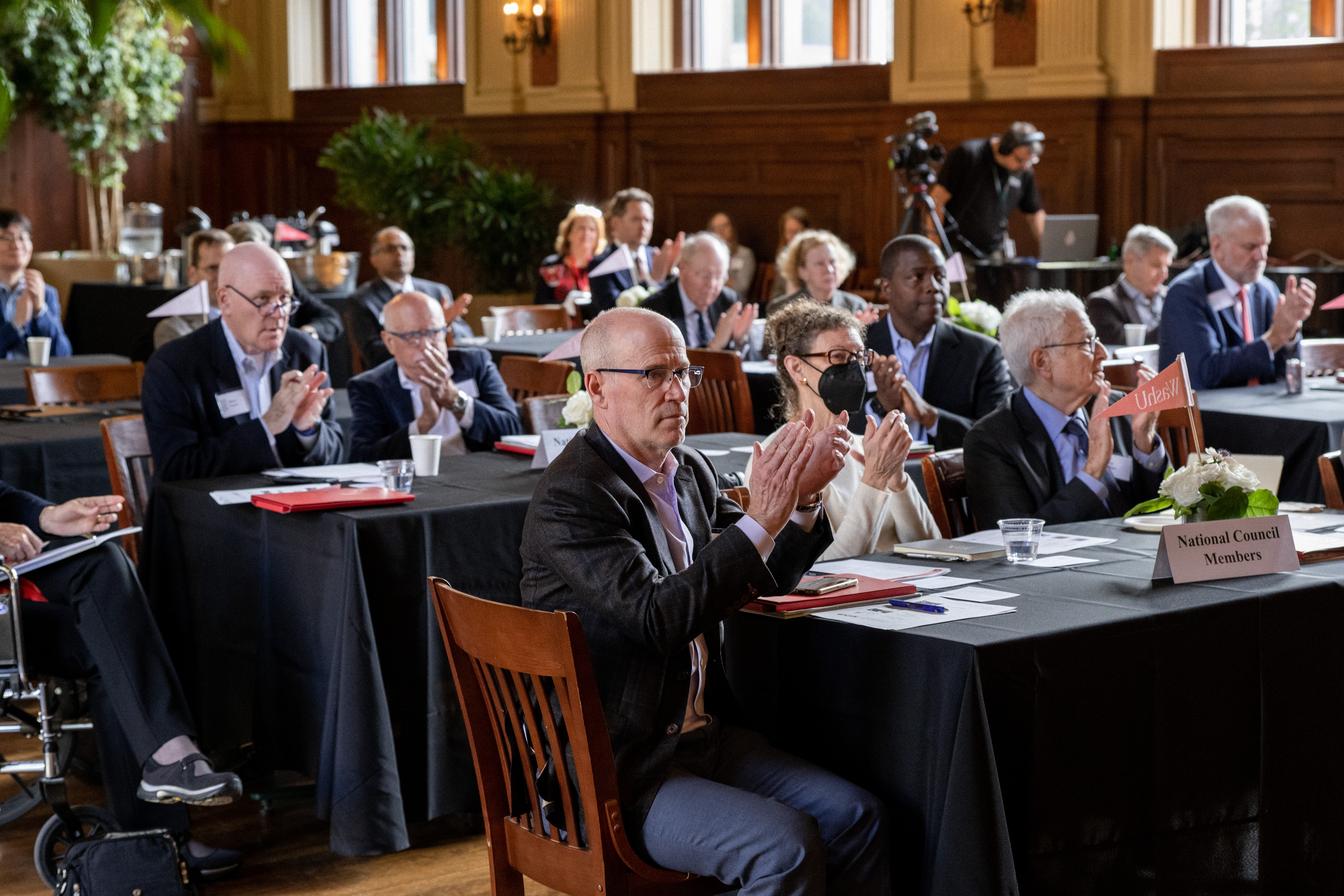
Winner
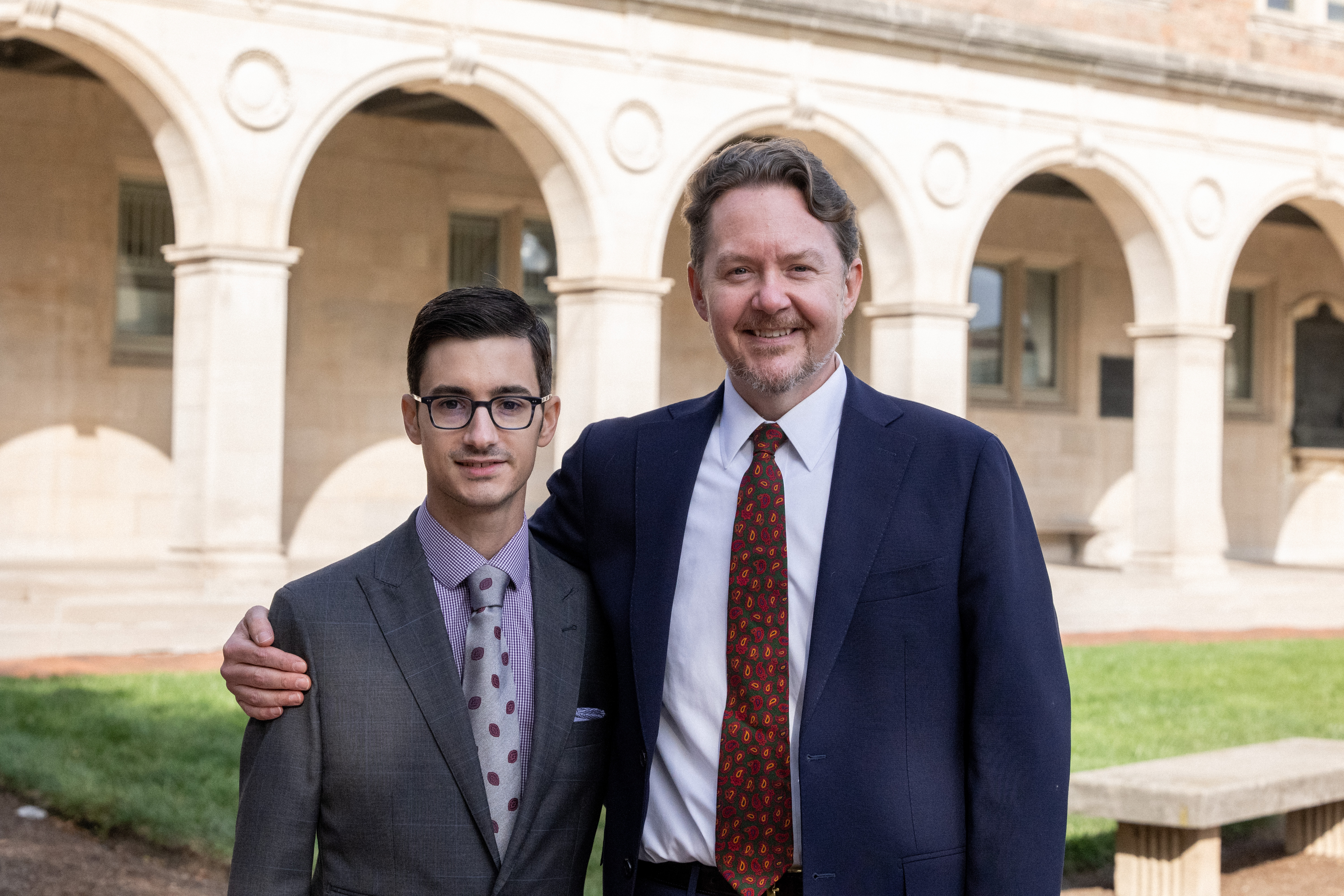
Benjamin Noble, Department of Political Science
Adviser: Andrew Reeves
Presentation: “When Do Presidents Persuade with Facts vs. Mobilize with Feelings”
Among other accomplishments, Benjamin Noble has published a solo-authored paper titled "Energy Versus Safety: Unilateral Action, Voter Welfare, and Executive Accountability'' in Political Science Research and Methods, the flagship journal of the European Political Science Association. The paper develops a theoretical model that makes predictions about the circumstances under which increasing executive authority may enhance voter welfare and when it makes voters worse off.
Finalists
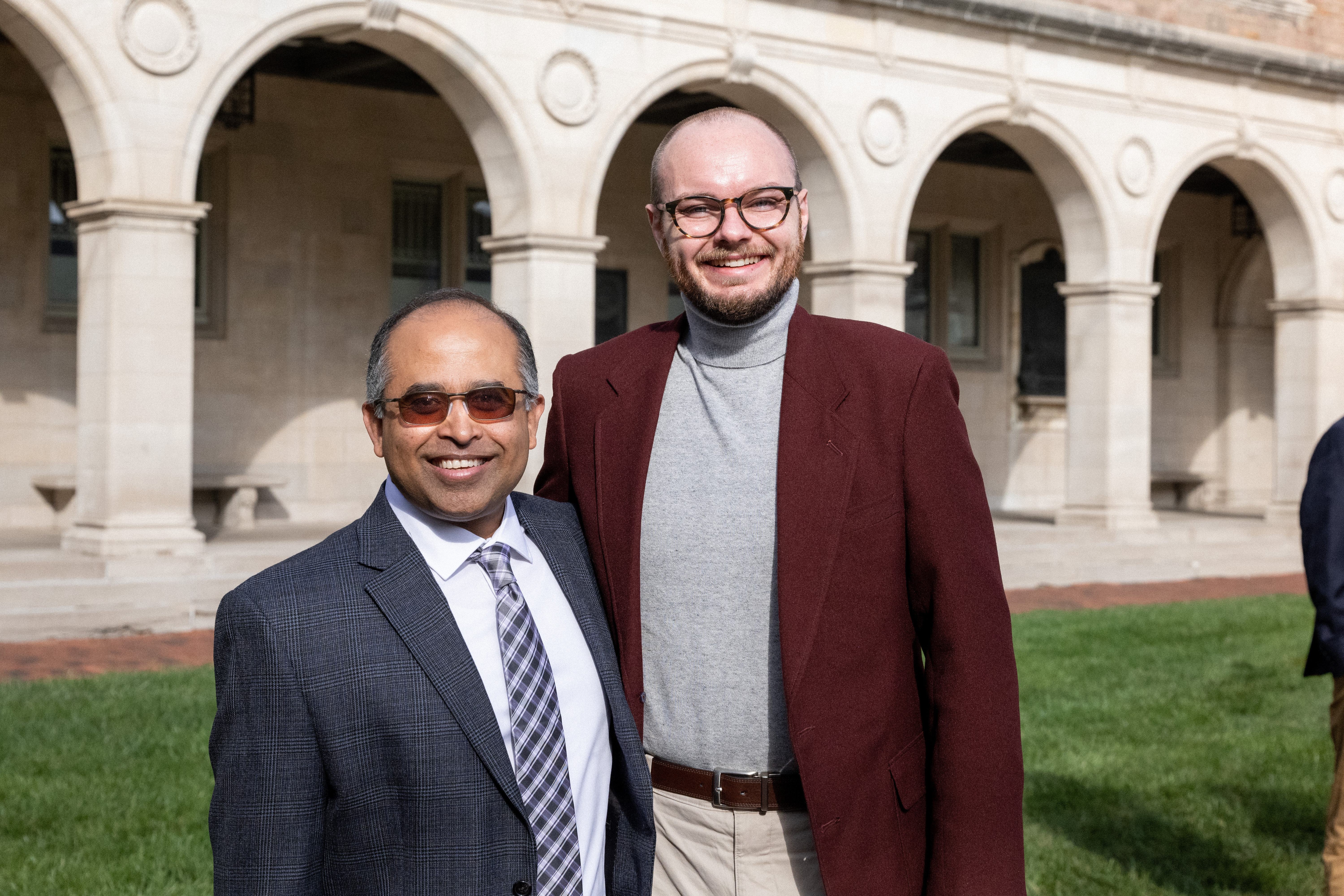
Ryan Calcutt, Department of Biology
Adviser: Ram Dixit
Presentation: “Scaffolds for Plant Production”
With applications in developmental biology, food production, plant-derived medicines, and textile fiber production, Ryan Calcutt’s work “epitomizes innovative convergent research that applies engineering and material sciences to plant biology,” according to his nomination materials. Working closely with collaborators across campus, Calcutt has developed technologies to address fundamental questions in plant mechanobiology.
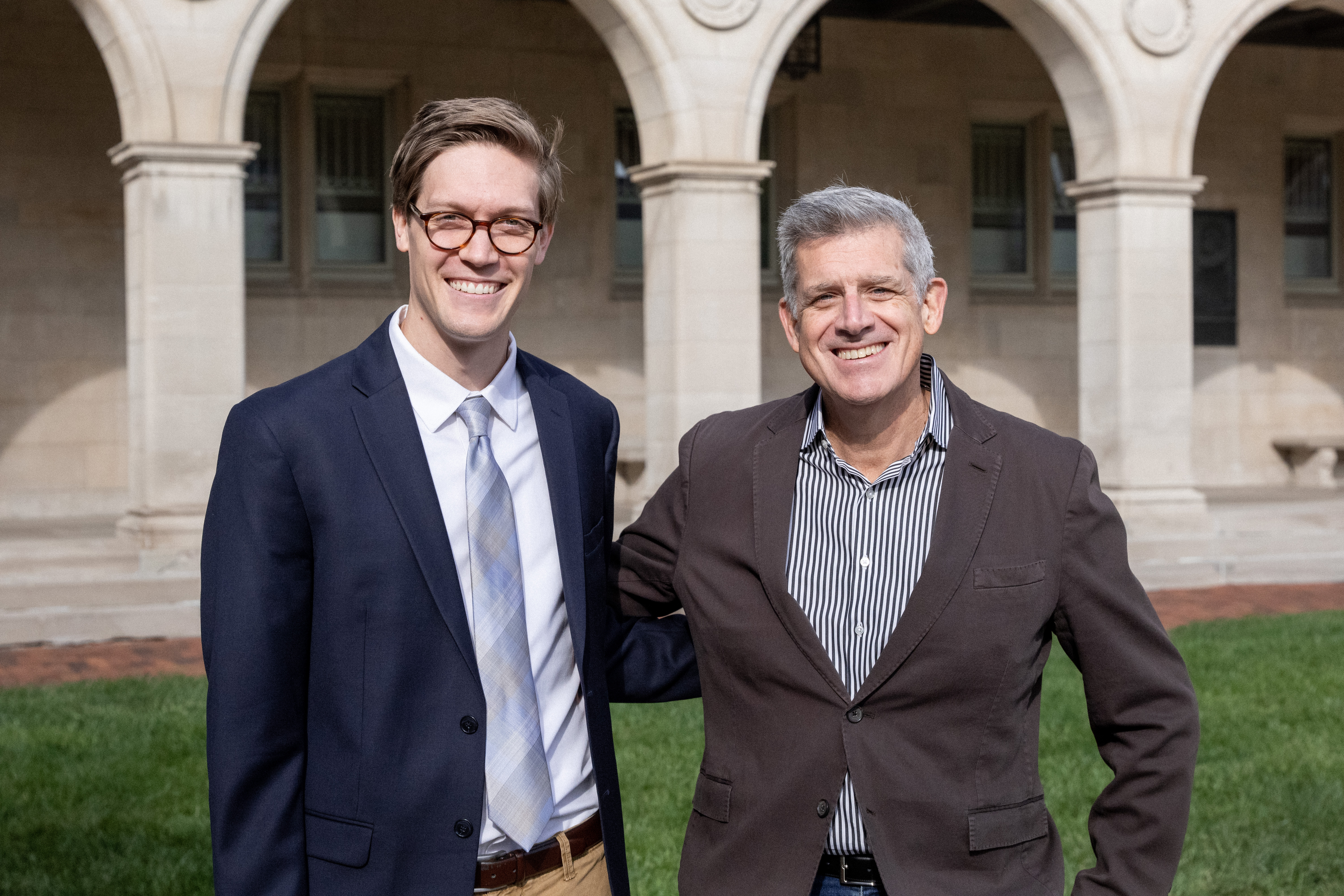
Alex Mouw, Department of English
Adviser: William J. Maxwell
Presentation: “Poets Against History”
Alex Mouw is a Lynne Cooper Harvey Fellow in American Culture Studies, a former fellow in the Humanities Digital Workshop, and, since 2019, the convener of the Poetry and Poetics Reading Group on campus. He has published three peer-reviewed articles on American literature and religious studies, as well as dozens of poems, in respected scholarly and literary journals. His book-length poetry manuscript, "The Unbelieving Yelp of Prey," has been a finalist in several competitions.
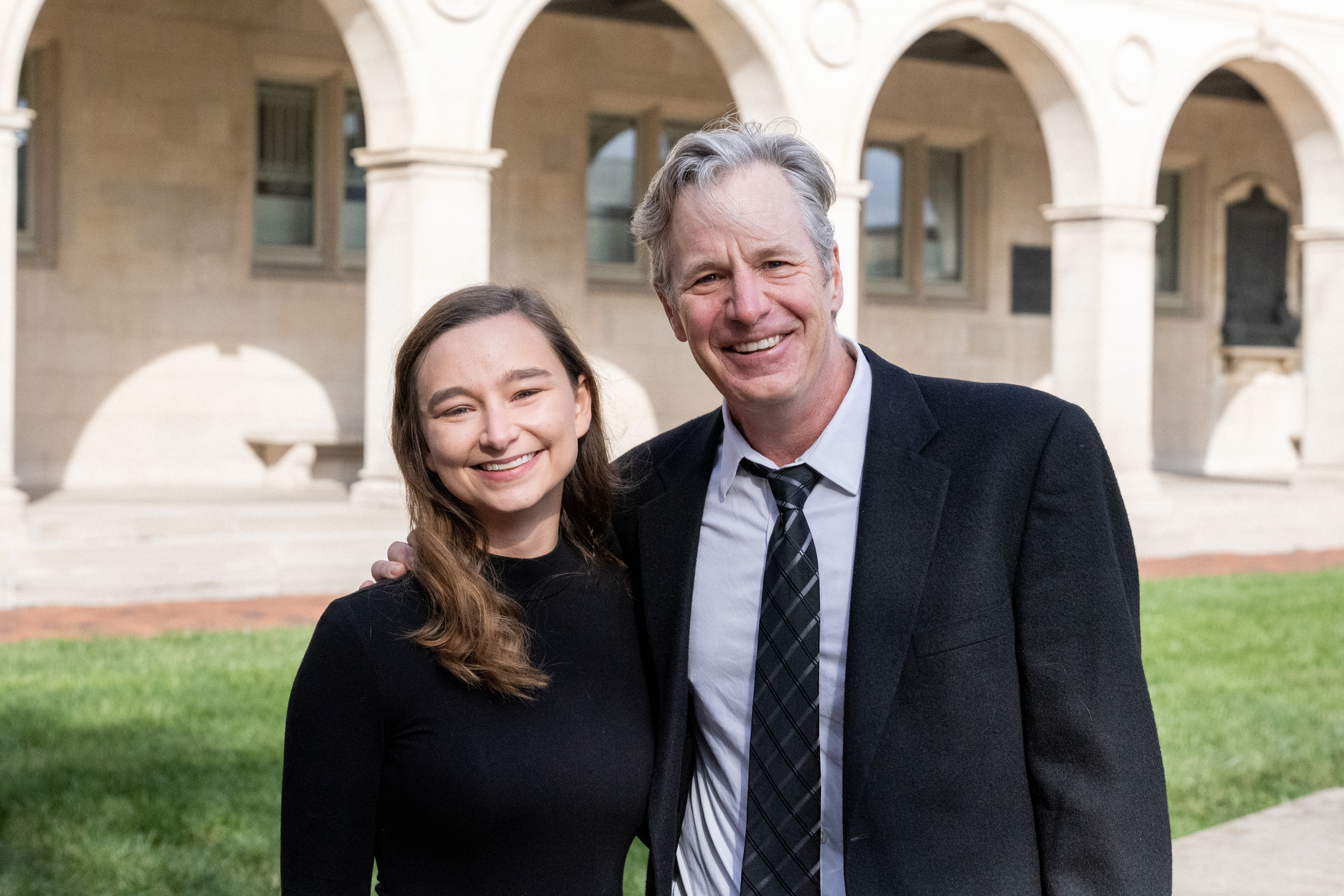
Judith Carlisle, Philosophy-Neuroscience-Psychology
Adviser: Carl Craver
Presentation: “Individual and Social Trauma”
Judith Carlisle’s transdisciplinary work on the notion of psychological trauma “smashes disciplinary boundaries” and “bridges a stunning range of literatures,” her nomination letter states. Her dissertation work includes discussions of neural systems and the role of trauma in social change. Reflecting this interdisciplinary reach, Carlisle has published articles related to the philosophy of cognitive science, pain management, and biology.
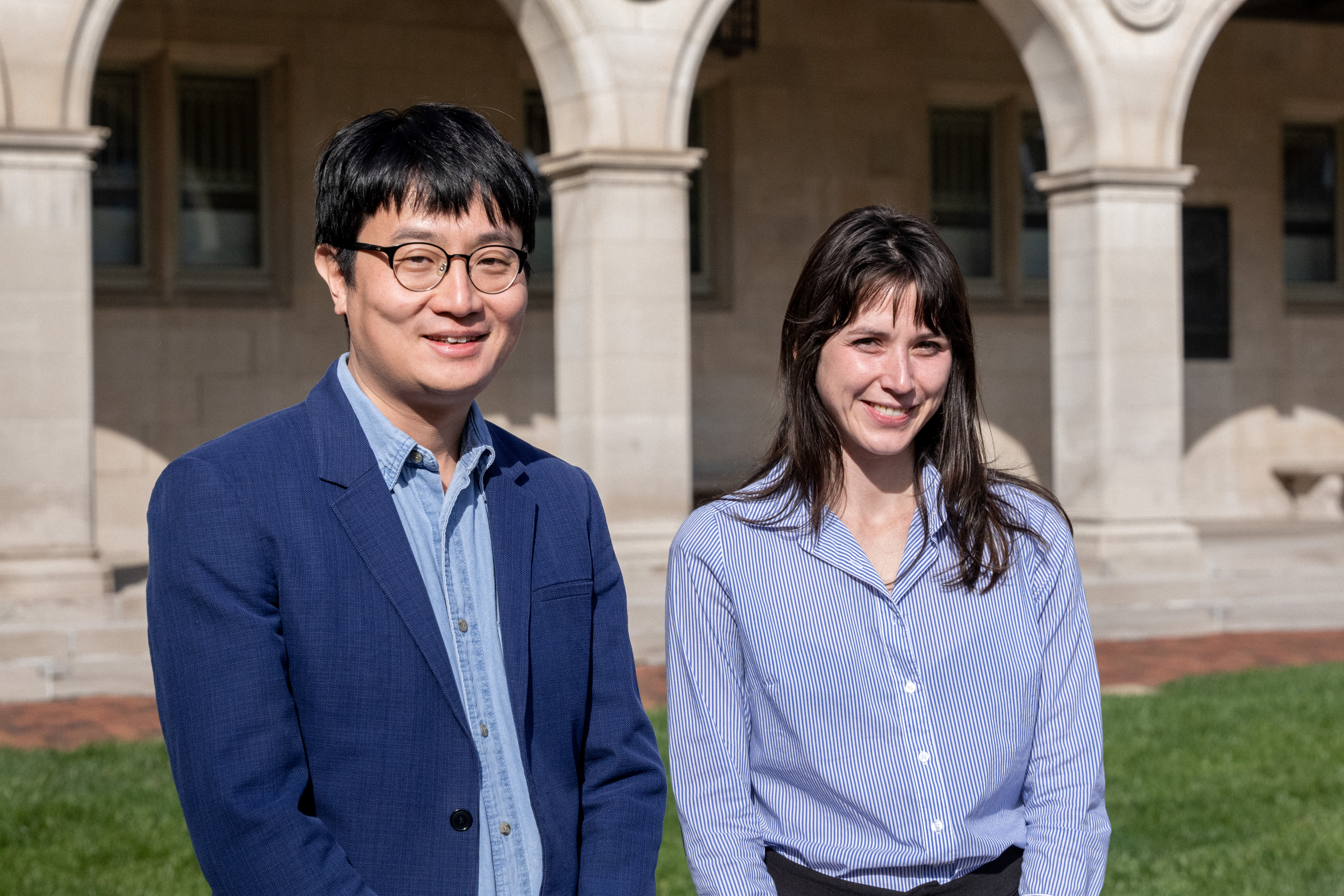
Seth Grooms and Grace Ward, Department of Anthropology
Adviser: T.R. Kidder
Presentation: “Square Pegs and Round Holes: Archaeology, Western Philosophies, and Native Histories”
For more than four years Seth Grooms and Grace Ward have worked together at an archaeological site in Jaketown, Mississippi. Their collaborative work includes one published paper American Antiquity and another paper in revision in Antiquity, the globally top-ranked journal of archaeology. “I know of no similar grad student led collaborative working at a single archeological site that has had the impact these two have had,” their nomination letter stated.
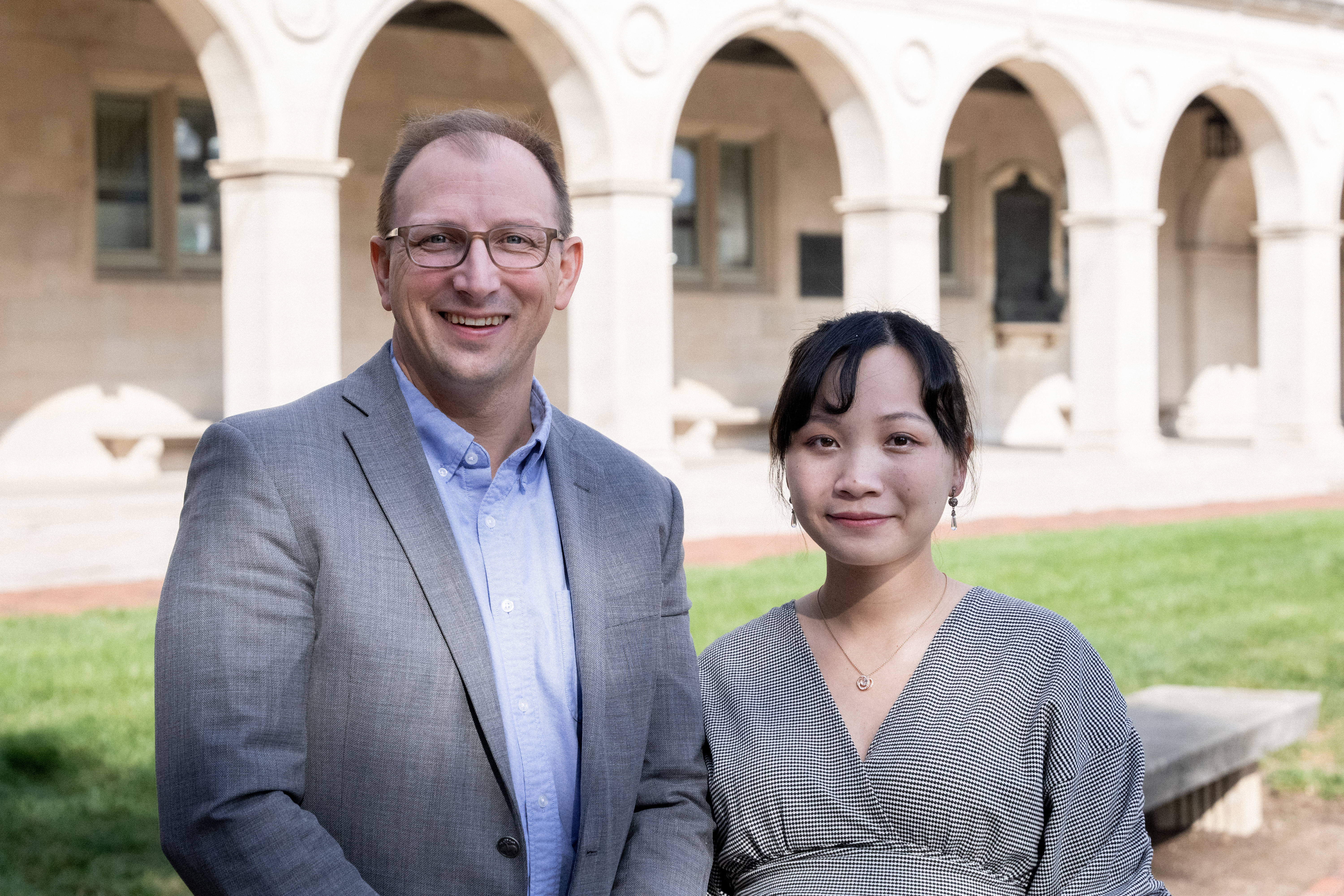
Jinping Yang, Department of Chemistry
Adviser: Tim Wencewicz
Presentation: “Chemical Solutions for Battling Superbugs”
Jinping Yang’s research focuses on antibiotic biosynthesis, using interdisciplinary methods to “reveal nature’s strategies for the biosynthetic assembly of structurally complex peptide natural products.” With four published manuscripts — three as first author — and two more ready for submission, Yang has had the most productive year of any graduate student who has worked in her lab. “Jinping comes up with her own ideas, challenges her own results, and engages everyone she meets with genuine interest and a giving spirit,” her letter of nomination stated.
Semifinalists
Kari Miller, Department of Biology
John Christian, Department of Earth and Planetary Sciences
Graham Renz, Department of Philosophy
Garrett King, Department of Physics
Madelyn Frumkin, Department of Psychological & Brain Sciences
Jennifer Crawford, Department of Psychological & Brain Sciences

